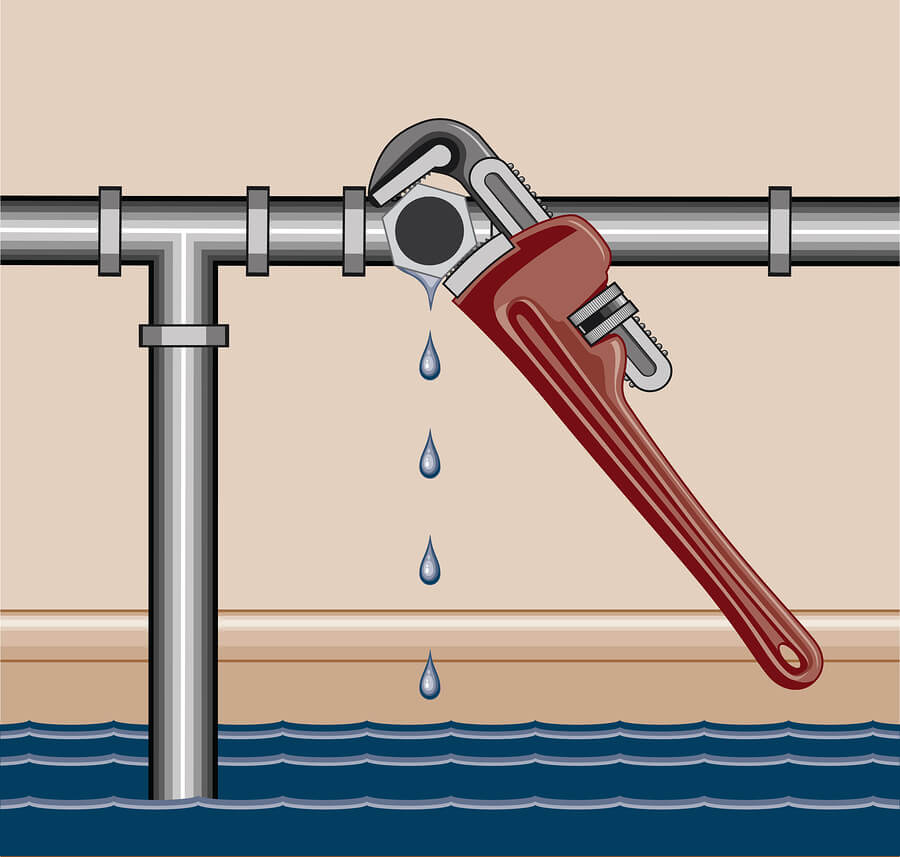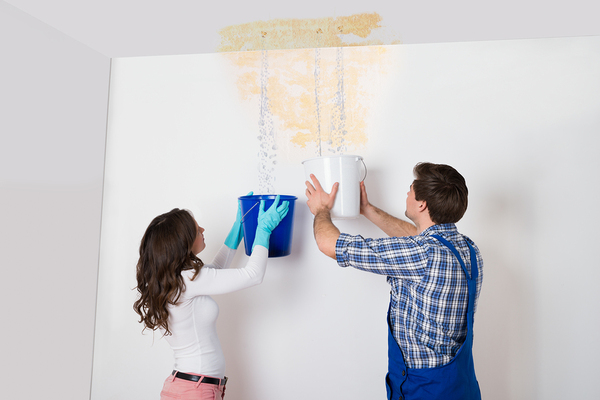A Guide to the Six Most Common Water Leak Causes in Your Home
A Guide to the Six Most Common Water Leak Causes in Your Home
Blog Article
How do you feel about Common Water Leaks In House?

Leakages not just create waste of water but can also cause unnecessary damage to your home and promote unwanted natural development. Water leakages may go undetected because most of the pipework in our home is concealed. By looking as well as comprehending for daily circumstances that trigger leaks, you can protect your residence from future leakages as well as unnecessary damages. Today, we will certainly consider 6 leakage triggers that might be causing your pipelines to leak.
Instantaneous temperature level adjustments.
Extreme temperature level adjustments in our pipelines can cause them to increase as well as get suddenly. This growth and also tightening may trigger fractures in the pipes, specifically if the temperature are below freezing. It would be best if you kept an eye on just how your plumbing works. The existence of the previously pointed out situations regularly indicates a high threat.
Rusty water systems
As time passes by, your plumbing system ages and also corrosion such as rust may begin gnawing the pipes. This may be the source of staining or warping on your water pipes. This requires an inspection with your plumber quickly. Consider replacing the pipes because they are at a higher risk of rust than the newer designs if our plumbing system is old.
Malfunctioning Pipeline Joints
The factor at which your pipelines attach is regularly the weakest web link in the waterline. Pipeline joints can wear away gradually, leading to water leaks. Regrettably, most of pipe joints are not quickly visible. If you have noisy pipes that make ticking or banging noises, specifically when the warm water is activated, your pipeline joints are most likely under a lot of stress. It is suggested to have your plumber evaluate your system annually.
Elbowing in origins
A lot of water leaks start outside your house as opposed to inside it. If you notice a sudden decline in water stress, state in your tap, take time to head out as well as examine your backyard. You could observe wet spots or sinkholes in your backyard, which could indicate that tree roots are attacking water lines triggering water to leak out. You can have your plumber check for breach, especially if you have trees or hedges near your property.
Poor Water Connectors
Sometimes, a leak can be brought on by loose hoses as well as pipes that supply your home appliances. Generally, shifting is what creates the loose water Links. You might locate when it comes to a washing equipment, a hose pipe might spring a leak as a result of trembling throughout the spin cycle. In case of a water links leak, you might notice water running straight from the supply line or puddles around your home appliances.
Clogged Drains
Blocked drains pipes might be irritating and inconveniencing, but they can sometimes end up creating an overflow leading to rupture pipelines. Maintain removing any products that might go down your drains pipes that can clog them to prevent such troubles.
All the above are causes of leakages however not all water leakages arise from plumbing leaks; some leaks may originate from roofing system leaks. All leakages need to be repaired right away to stay clear of water damage.
Leakages not just cause waste of water however can likewise create unneeded damages to your home and also advertise undesirable organic growth. By looking and also recognizing for daily circumstances that trigger leakages, you can shield your residence from future leakages and also unneeded damage. Today, we will look at six leak triggers that might be triggering your pipelines to leak.
At times, a leakage can be caused by loose hose pipes and pipes that supply your appliances. In case of a water connections leak, you may discover water running straight from the supply line or puddles around your home appliances.
Tell-Tale Signs of a Water Leak
The Sound of Running Water
If you’re hearing water running, your first step should be to check your faucets, toilet valves, and outdoor spigots. If everything if status quo, take an exact reading of your water meter and don’t use the water for a few hours. Then, take another meter reading. If there has been no change, that means water is not running (and maybe it’s time to have your hearing checked!). If the reading has changed, however, this indicates that water is indeed flowing and you most likely have a leak.
Wet or Damp Floors
You’re walking across your carpet and suddenly squish—your sock is soaked! The dog doesn’t look guilty and your child swears they didn’t spill anything. That means you’re likely looking at sewer leakage. Now, it’s easy to just soak it up with a towel and call it a day; however, this won’t stop the leak. Ignoring the problem allows moisture to build up, ultimately causing mold or mildew. Not only is this smelly, it can be very toxic and harmful to children, the elderly, pets, and those with weak immune systems. Don’t risk the health of your home and your family—call in a professional to take care of the problem.
Foul Odors
If there’s an unpleasant smell in your home and you can’t locate the source, don’t just light a candle or spray some Febreze. Funky smells are often due to mold and mildew, which spread fast under ideal conditions (optimal temperature and level of humidity). Growth begins within about 24-48 hours, and spores start to colonize in 3-12 days, becoming visible to the eye within about 18 days. If you think the odor is leak-related, get a plumber out as soon as possible to mitigate damage from rapid fungi growth (and rid your home of the foul odor).
Overgrowth in the Lawn
Unless you didn’t fertilize your lawn evenly, a lush patch of grass in a select area of your lawn, or concentrated wet spots, indicate pipe leakage which is acting as a fertilizer. Left untreated, hazardous bacteria in the underground waste will quickly turn into a messy situation, going from lush growth to lawn destruction.
Wall Cracks
Over time, even the littlest of leaks can cause cracks in the foundation of your home and compromise the entire structure. How does it happen? The leak continues hammering away at the same spot in the ground beneath your home, eventually causing it to shift slightly. Now, you’d never feel this shift, but your walls will. This can be a very dangerous situation, so if you’re seeing vertical or diagonal cracking in your walls it’s best to call a plumber right away.
https://www.expresssewer.com/blog/6-telltale-signs-of-a-water-leak-in-your-home

Do you enjoy reading about How to detect water leaks in your home? Give a remark below. We'd be delighted to listen to your suggestions about this blog post. Hoping that you come back again later on. Sharing is good. You just don't know, you might be helping someone out. I value reading our article about Top Causes of Home Water Leaks.
Call Today Report this page